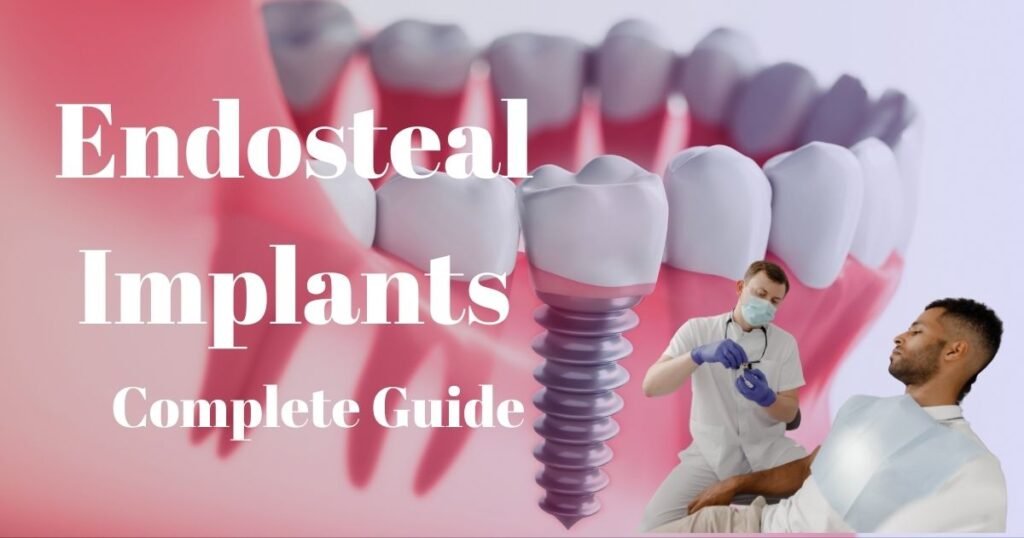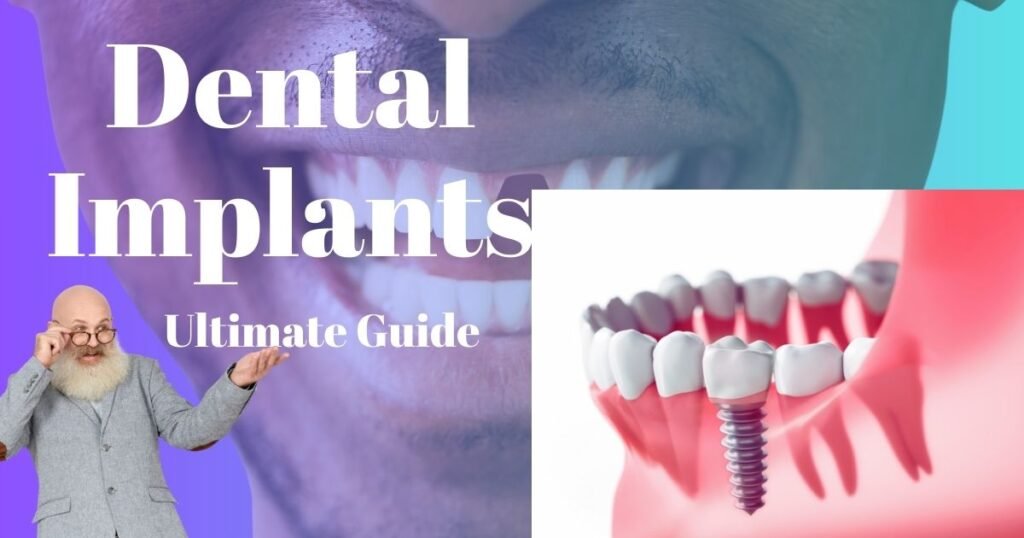A Dental crown is defined as a tooth-shaped cap that is placed over a decayed or damaged tooth that is still functionally useful. The purpose is to safeguard the teeth while at the same time improving their aesthetic appeal. There are many variables about the price of dental crowns. For instance, the type of material to be used, the setting of the dental clinic, the skills and experience of the operating dentist, the dental insurance one has, if any, and other available options greatly determine the price of dental crowns. This article will explain the types of dental crowns and the factors that affect their prices, insurance, and other cheaper options to enable you to decide how much does a dental crowns cost.
When considering how much does a dental crown costs, it’s important to understand the different factors that play a role in determining the final price.

Dental Crown Cost Calculator
🦷 Interactive Dental Crown Cost Estimator
📋 Further verify with your local dental clinic before starting treatment.
What is a Dental Crown?
A dental crown, often referred to as a cap, is a prosthetic device designed to encase and safeguard a compromised or fractured tooth. It addresses the inquiry regarding the cost of a dental crown by offering a definitive solution for tooth restoration:
- Restoration of chewing capability
- Enhancement of aesthetic appeal
- Reinforcement of a damaged tooth
- Support for a dental bridge or implant
Dental crowns are frequently utilized following a root canal procedure, to shield a tooth with a substantial filling, or to enhance cosmetic appearance.
An important factor to consider when inquiring about the cost of a dental crown is the specific type of crown selected.
To clarify the cost of a dental crown, a detailed overview of typical expenses is provided.
How Much Does a Dental Crown Cost?

The cost of a dental crown depends on several factors. Below is a general price range for various types of crowns:
The subsequent section elaborates on the cost of a dental crown and the elements that affect its pricing.
Gaining an understanding of the cost of a dental crown necessitates an exploration of the different materials employed in dental crowns.
| Type of Crown | Cost (Per Tooth) |
|---|---|
| Porcelain | $800 – $3,000 |
| Porcelain-Fused-to-Metal (PFM) | $800 – $1,500 |
| Zirconia | $1,000 – $3,000 |
| Metal (Gold, Silver Alloys) | $900 – $2,500 |
| Composite Resin | $300 – $1,200 |
| Same-Day CEREC Crown | $1,000 – $2,500 |
Prices may vary based on location, the dentist’s expertise, and the complexity of the procedure.
Factors Affecting the Cost of Dental Crowns
Several elements contribute to the final cost of a dental crown:
Type of Material Used
There are various materials available for the manufacturing of dental crowns, but there are three popular materials from which crowns are made. We can classify dental crowns based on the material used. There are Porcelain crowns, zirconia crowns, and metal crowns. Porcelaine crowns are more natural-looking but most costly. On the other hand, zirconia crowns are highly durable but costlier. If you are looking for an affordable, cost-effective solution metal crown is the best option, but it comes with limitations. A metal crown is less aesthetic, which means it looks less real than its expensive alternative
Dentist’s Experience & Location
The experience and specialisation of a dentist matter over the cost of a dental crown. If you are visiting dental specialists like endodontics, they will charge you more as compared to a generalized dental practitioner.
If you are living in an urban area, the operational cost for the dentist is very high. So that they charge more than to dentist in a rural area.
Additional Procedures Needed
Placement of a dental crown is not a single treatment; it always comes with multiple procedures. For example, if you need a root canal or dental restoration before the placement of a dental crown, it will cost you additionally. If you need a dental root canal treatment, it can add $500 to $1500 to the total cost.
If that tooth required build-up or additional work, it will increase the price, so give all these factors in mind when deciding the cost of a dental crown.
Type of Dental Insurance
Dental insurance provides great relief from the cost of dental crown treatment. There are some insurance plans that cover more than 50% of the treatment cost. If you are not taking any kind of insurance cover the cost is going to be expensive. That will result in higher out-of-pocket expenditure for the dental health Care
Cost Breakdown by Type of Dental Crown
Porcelain Crowns ($800 – $3,000)
- Natural-looking, best for front teeth
- Prone to chipping
Porcelain-Fused-to-Metal (PFM) Crowns ($800 – $1,500)
- Strong and durable
- May show a metal edge over time
Ultimately, determining how much a dental crown costs is essential for making informed decisions regarding your dental health.
Zirconia Crowns ($1,000 – $3,000)
- Extremely durable, highly aesthetic
- More expensive than other options
Metal Crowns (Gold, Silver) ($900 – $2,500)
- Long-lasting, ideal for molars
- Less aesthetic, not commonly used for front teeth
Composite Resin Crowns ($300 – $1,200)
- Affordable, used for temporary restorations
- Less durable than other materials
Same-Day CEREC Crowns ($1,000 – $2,500)
- Made in one visit, no temporary crown needed
- More expensive than traditional crowns
Does Insurance Cover Dental Crowns?

Dental Insurance Plans
Most dental insurance plans cover part of the crown’s cost.
Dental insurance provides great relief from the cost of dental crown treatment. There are some insurance plans that cover more than 50% of the treatment cost. If you are not taking any kind of insurance cover the cost is going to be expensive. That will result in higher out-of-pocket expenditure for the dental health Care.
The dental insurance significantly reduces the cost of dental ground treatment. If you are covered by any kind of insurance plan, you can save up to 40-50% of the treatment cost.
With insurance, you may pay $300-$1000 as out-of-pocket expenditure, but without insurance, you have to pay $800 to $3000 per tooth, which is obviously higher
Medicaid and Medicare:
These are USA state-funded health insurance plans for people who belong to low-income groups. This scheme will cover all the dental treatments that are medically necessary for the patient. One thing you have to keep in mind is that the price of dental costs varies state by State due to various rules and regulations based on different states. So, before going for the dental treatment, verify the concession that you can get under this scheme.
Coverage varies by state and is limited to medically necessary procedures.
Payment Plans & Dental Discount Programs
Many dentists offer various financial plans for dental treatment. They also offer monthly installment incentives to attract the patient. You can also take the membership plan for a great discount on the treatment from the dentist, but this is subject to the offer given by the dentist for their promotion
Low-Cost Alternatives to Expensive Crowns
- Dental Schools – Offer discounted crowns by supervised students
- Community Clinics – Provide low-cost or free dental care
- Discount Dental Plans – Reduce crown costs by 10% – 60%
- Temporary Crowns – Used as a short-term solution
How Long Do Dental Crowns Last?
A dental crown can last 5 – 15 years with proper care. The lifespan depends on:
✔ Material Used – Metal crowns last longer than porcelain ones.
✔ Oral Hygiene – Brushing & flossing extend crown life.
✔ Bite Pressure – Grinding teeth can wear out crowns faster.
To make your crown last longer, avoid chewing hard foods and visit your dentist regularly.
Signs You May Need a Dental Crown
- Severe tooth decay
- Cracked or broken teeth
- Large fillings that weaken the tooth
- Root canal-treated teeth
- Cosmetic improvements for discolored teeth
How to Save Money on Dental Crowns

- Shop Around – Compare prices from multiple dentists.
- Check for Special Offers – Some clinics offer discounts on crowns.
- Ask About Payment Plans – Many offices offer financing options.
- Consider Traveling Abroad – Dental tourism in countries like Mexico, India, and Thailand can save 50% – 70% on dental crowns.

Final Thoughts: Is a Dental Crown Worth the Cost?
Although dental crowns are expensive, they are a long-term investment in your oral health. A crown can restore function, prevent further damage, and improve your smile.
Key Takeaways:
✔ Dental crowns cost between $800 – $3,000 per tooth.
✔ Prices depend on the material, dentist, and insurance.
✔ Insurance may cover 50% or more of the cost.
✔ Affordable options include dental schools, community clinics, and payment plans.
✔ Proper care can make a crown last over a decade.
If you need a dental crown but are worried about the cost, explore financing options and affordable alternatives to ensure you get the dental care you need without breaking the bank.
Webstory on the Cost of a Dental Crown
15 Frequently Asked Questions (FAQs) About Dental Crown Costs
How much does a dental crown cost without insurance?
Without insurance, the cost of a dental crown typically ranges from $800 to $3,000 per tooth. The exact price depends on the type of crown, the dentist’s expertise, the location, and whether any additional procedures are required, such as a root canal or tooth build-up.
How much does a dental crown cost with insurance?
With dental insurance, the out-of-pocket cost for a dental crown is typically between $300 and $1,000 per tooth. Most insurance plans cover 50% or more of the cost if the procedure is medically necessary. However, some plans have annual coverage limits that may not fully cover multiple crowns.
What is the cheapest type of dental crown?
The most affordable type of dental crown is composite resin, costing $300 to $1,200 per tooth. However, composite resin crowns are less durable and prone to wear over time. Porcelain-fused-to-metal (PFM) crowns are another cost-effective option, ranging from $800 to $1,500 per tooth, offering a balance of durability and aesthetics.
Why are zirconia and porcelain crowns more expensive?
Zirconia and porcelain crowns cost more due to their high-quality materials, durability, and natural appearance. Zirconia crowns range from $1,000 to $3,000 per tooth, while porcelain crowns cost between $800 and $3,000 per tooth. These materials provide better aesthetics, longer lifespan, and greater biocompatibility, making them ideal for front teeth restorations.
Does Medicare or Medicaid cover dental crowns?
Medicare does not typically cover dental crowns unless the procedure is medically necessary due to a related hospital stay.
Medicaid coverage varies by state and is usually limited to medically necessary dental treatments, such as crowns needed for severe decay or injury. Some states offer coverage for children but may not cover adult crowns.Are there payment plans for dental crowns?
Yes, many dentists offer financing options such as
In-house payment plans
CareCredit or third-party financing
Dental discount plans
These options help spread the cost over several months to make treatment more affordable.Can I get a crown for free?
Free or low-cost dental crowns may be available through:
Dental schools offering discounted treatments by supervised students
Community health clinics providing assistance to low-income patients
Nonprofit organizations offering free or low-cost dental careHow long do dental crowns last?
The lifespan of a dental crown depends on the material and oral care habits:
Metal crowns: 15–30 years
Zirconia crowns: 10–20 years
Porcelain-fused-to-metal (PFM) crowns: 10–15 years
Porcelain crowns: 5–15 years
Composite resin crowns: 5–10 yearsDo I need a root canal before getting a crown?
Not always. A root canal is only necessary if the tooth’s pulp is infected or damaged. If the tooth is still strong but has a large cavity, fracture, or wear, a crown alone may be sufficient. Your dentist will determine if a root canal is needed based on an X-ray and examination.
What happens if I don’t get a crown after a root canal?
If you don’t get a crown after a root canal, the treated tooth is at risk of:
Fracturing due to being brittle
Reinfection if bacteria enter the exposed tooth
Tooth loss, requiring a dental implant or bridge laterHow much does a same-day (CEREC) crown cost?
A same-day CEREC crown costs between $1,000 and $2,500 per tooth. This type of crown is milled in-office using digital technology, eliminating the need for temporary crowns and multiple dental visits. Although convenient, CEREC crowns may be more expensive than traditional lab-made crowns.
How much does a gold dental crown cost?
A gold dental crown typically costs between $900 and $2,500 per tooth, depending on the amount of gold and other metal alloys used. Gold crowns are highly durable and ideal for back molars, where strength is essential. The price may fluctuate based on the market cost of gold.
What are the alternatives to a dental crown?
If a dental crown is too expensive, consider these alternative treatments:
Dental fillings (for minor cavities)
Inlays or onlays (for moderate tooth damage)
Veneers (for cosmetic improvements)
Tooth bonding (for small chips and cracks)
However, these options may not provide the same level of protection and longevity as a crown.What should I do if my dental crown falls off?
If your dental crown falls off, follow these steps:
Keep the crown and avoid chewing on the affected side.
Rinse your mouth and the crown with warm water.
Temporarily reattach it with dental cement (available at drugstores) if necessary.
Schedule an emergency appointment with your dentist as soon as possible.
Leaving the tooth exposed for too long can lead to sensitivity, infection, or further damage.Can I whiten my dental crowns?
No, dental crowns cannot be whitened using traditional whitening treatments. If a crown becomes discolored, you may need to:
Replace the crown with a new one
Polish it professionally at the dentist
Choose a whiter crown shade if replacing multiple crowns
Whitening treatments only work on natural teeth, so it’s best to choose a crown color that matches your teeth before placement.
These detailed FAQs provide valuable insights into the cost, lifespan, alternatives, and insurance options for dental crowns. If you need a dental crown, consult a dentist for a personalized treatment plan based on your budget and oral health needs.
In considering how much does a dental crown cost, explore payment options to make it more affordable.
These insights into how much does a dental crown cost can help guide your journey toward dental restoration.

Dr. Niraj Ghanghoriya is a passionate dental surgeon with over 12 years of experience in clinical dentistry. He completed his BDS from the prestigious Sri Aurobindo Institute of Dentistry in 2012 and specializes in painless root canals, smile makeovers, and preventive oral care. Known for his patient-first approach and clear communication, Dr. Ghanghoriya aims to make dental knowledge accessible to everyone. When he’s not in the clinic, he enjoys writing informative dental blogs to help people take better care of their oral health.






